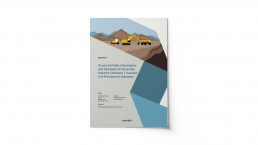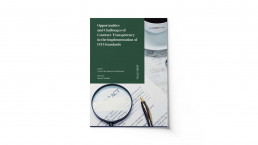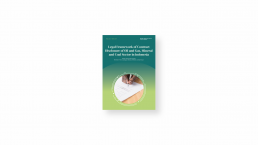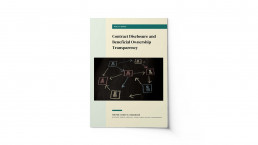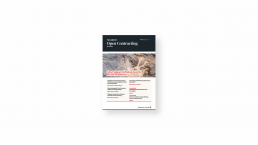Law Number 14 Year 2008 concerning the Public Information Disclosure promulgated on 30 April 2008 mandates the implementation of public information disclosure by public body, both at national and sub-national. Although it has been effective since 2010, in fact the implementation has not run optimally. According to the evaluation carried out by Central Information Commission in 2018, only 104 of 460 public bodies (equivalent to 22.61%) has implemented the public information disclosure. While the remaining 77% deemed have not fully implemented the mandate of Public Information Disclosure Law. The extractive industry is among the secretive sectors.
Transparency wave in the extractive industry has led to the disclosure of revenue information, yet licensing information is still hard to get. A number of civil society has requested contract and licensing information in the extractive industry, along with the growing public demand on a transparent and accountable extractive governance.
The Public Information Disclosure Law itself has explicitly stated that contract and licensing documents are open information, yet in practical level, public still has difficulty to obtaining such documents. In fact, if they succeed in getting the document, the process that goes through is protracted, for more than one year. The lack of contract and licenses openness is suspected as the reason behind the chaos of mining permit governance in Indonesia, such as overlapping permits, mining in conservation and protection areas, etc. No less important, this also makes it difficult for the public to carry out supervision, given the absence of key information regarding licensing.
Publish What You Pay (PWYP) Indonesia supported by Open Contracting program of Hivos initiated an effort to promote contract and license transparency in mining sector in West Nusa Tenggara Province, one of the biggest copper producing province in Indonesia. This initiative is specifically designed to push for mining contract and licensing documents disclosure and improve public participation in monitoring mining activities.
Interventions in the project will target two sides, namely the demand side by increasing public awareness of the importance of contract openness in the mining sector as the basis of supervision, as well as the supply side by assisting provincial government in opening contract and licensing documents. Therefore, the project will facilitate capacity building for impacted community to better understand the value chain of mining sector in general as well as mining contract and licensing documents in particular.
This project is part of the commitment of PWYP Indonesia in realizing a transparent and accountable extractive governance for equitable and sustainable development. Contract and license transparency is believed to be able to track the flow of revenue and reduce corruption practices. Moreover, the extractive industries contribute up to 53% of non-tax revenue in the Ministry of Energy and Mineral Resources (MEMR) in 2018 (MEMR, 2019).
17 November 2020
Standing Up Against Intimidation in Mining Oversight
Gathering information from a quarrying site C in Pemepek Village, Pringgarata District of Central Lombok was difficult. It had taken Kamal*, a local…
3 August 2020
Acces to Public Information and Openess of Extractive Industry Contract / licenses in 6 Provinces in Indonesia
The contracting and licensing processes in the context of public service provision, infrastructure development and potential regional…
3 August 2020
Opportunities and Challenges of Contract Transparancy in the Implementation of EITI Standards
The 2019 Extractive Industries Transparency Initiative (EITI) Rules produced at the global EITI conference in Paris, have produced…
3 August 2020
Legal Framework of Contract Disclosure of Oil and Gas, Mineral and Coal Sector in Indonesia
The contracts disclosure in various sectors in Indonesia often faces challenges due to regulations that are used as an excuse for…
3 August 2020
Contract Disclosure and Beneficial Ownership Transparency
Contracts Disclosure and beneficial ownership transparency are two transparency instruments of corporations that are very important…
25 July 2020
Newsletter – Open Contracting – July 2020
Newsletter - Open Contracting - July 2020 from Publish What You Pay (PWYP) Indonesia
17 July 2020
The Long Road to Open Contract and Permit in Indonesia
Open contracts and permits still debate. Some people argue that contracts and permits should be opened to the public or vice versa. Open contract in…
3 July 2020
One Data Policy in The Pandemic Era: Story from West Nusa Tenggara and Semarang Provinces
In early March 2020, President Joko Widodo had officially announced that there are Indonesian citizens who have been infected the Corona Virus or…

